新概念第一册Lesson91 Poor Ian课件+音频(共42张PPT,含内嵌视频)
文档属性
| 名称 | 新概念第一册Lesson91 Poor Ian课件+音频(共42张PPT,含内嵌视频) | 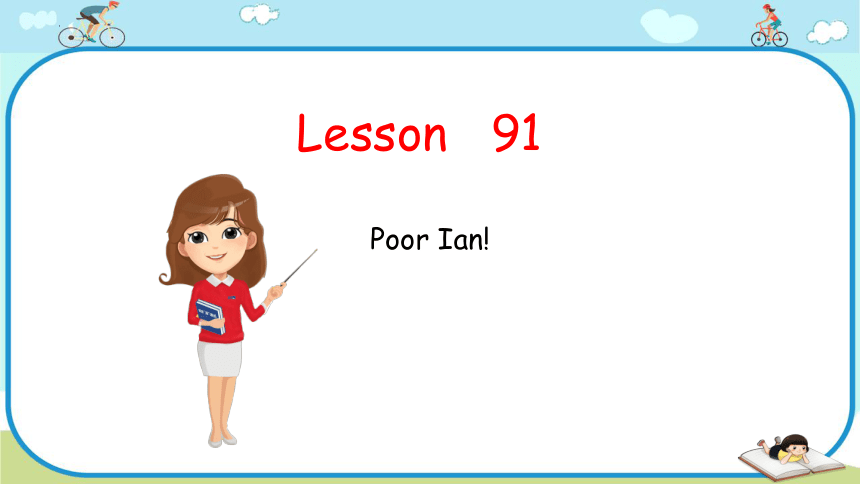 | |
| 格式 | pptx | ||
| 文件大小 | 32.2MB | ||
| 资源类型 | 教案 | ||
| 版本资源 | 新概念英语 | ||
| 科目 | 英语 | ||
| 更新时间 | 2024-08-25 09:54:12 | ||
图片预览

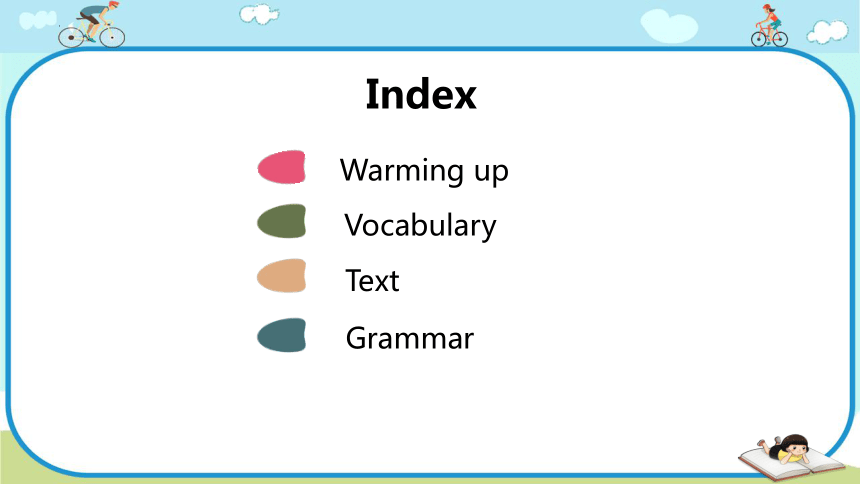
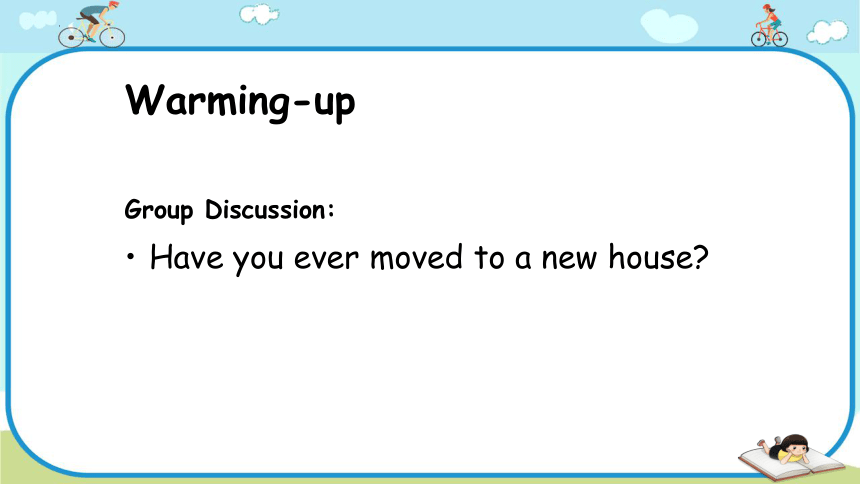
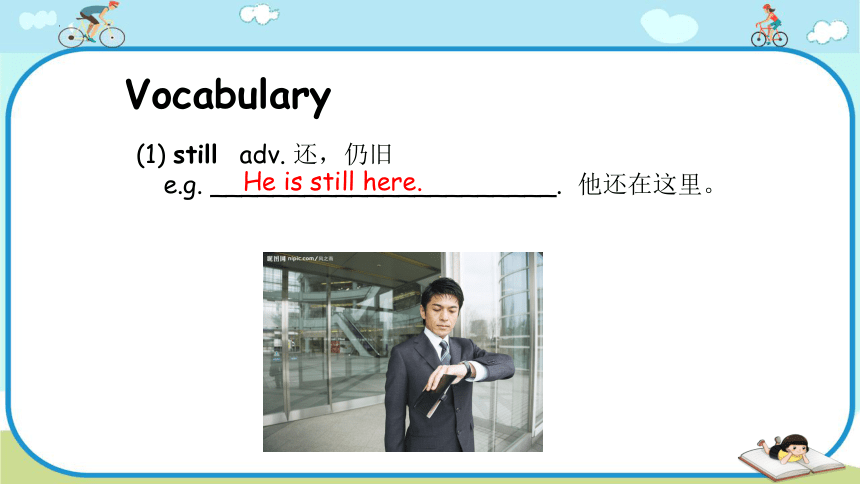
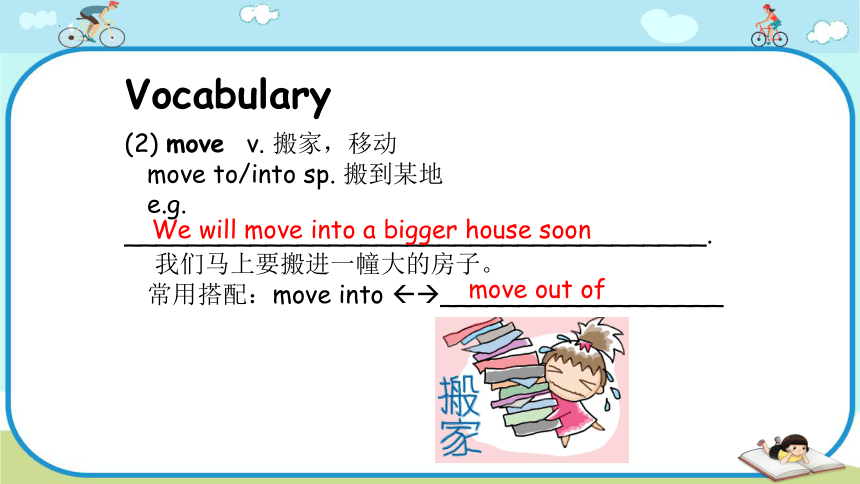
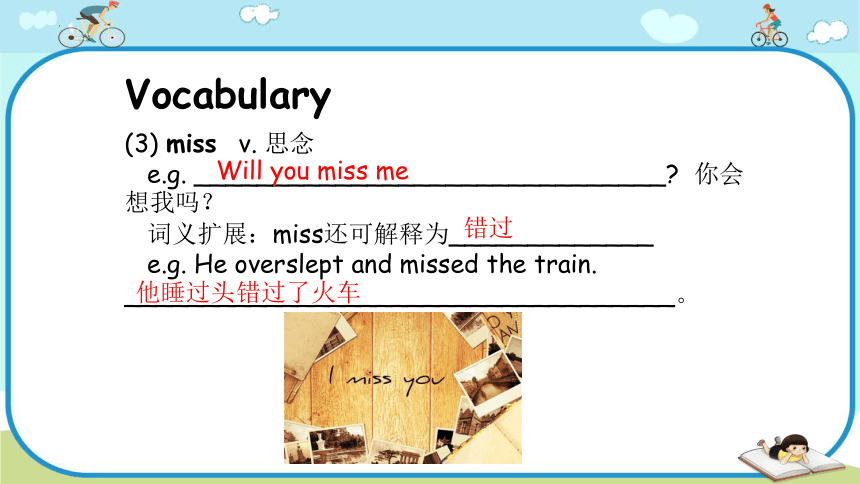
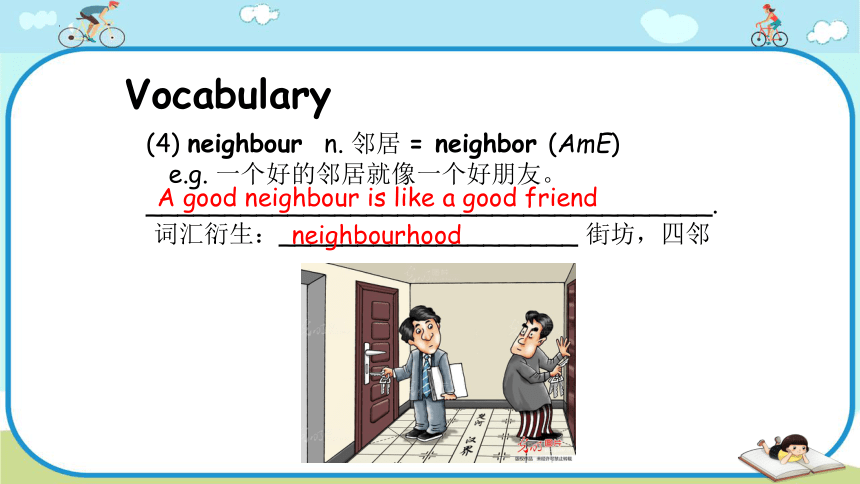
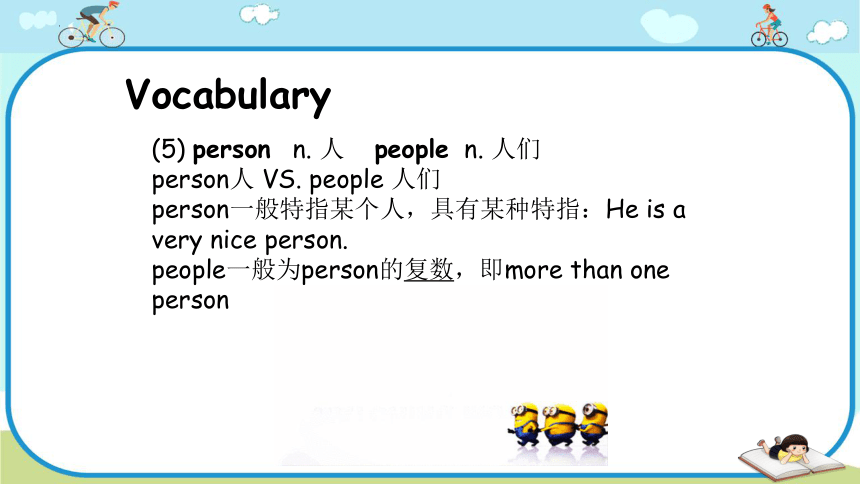
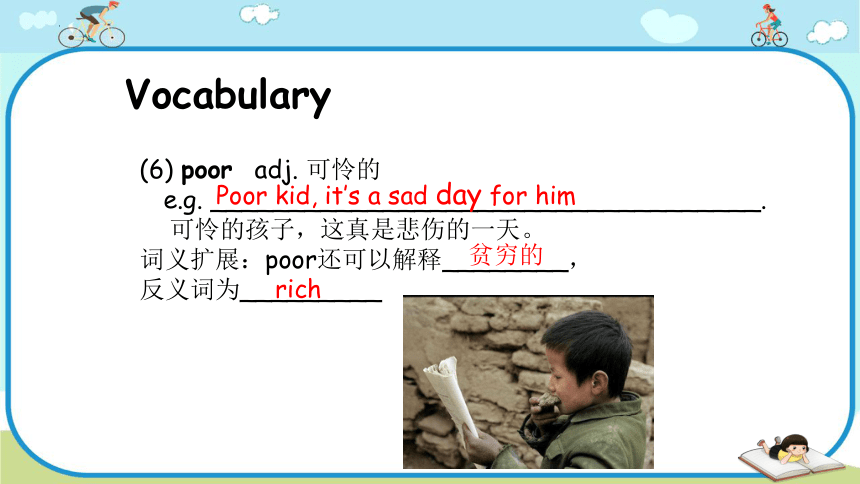
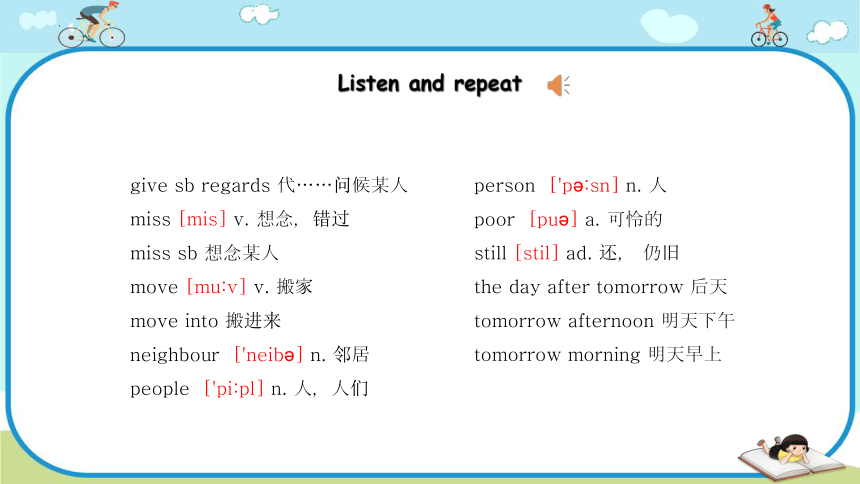
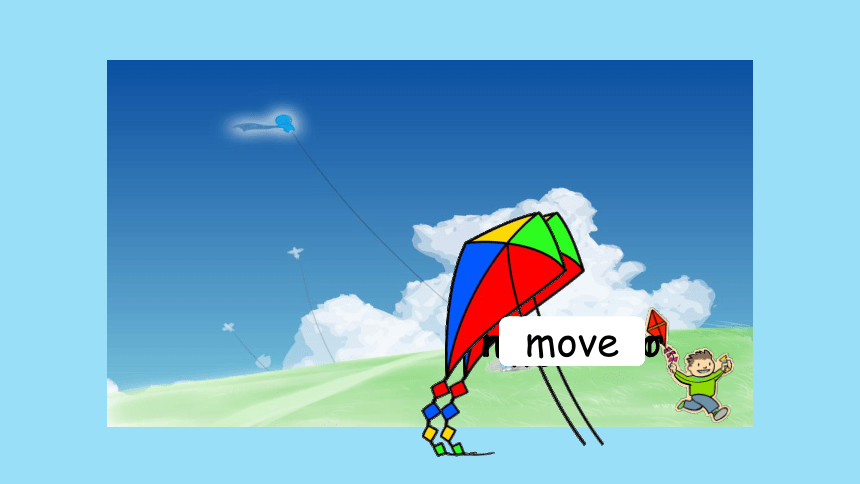
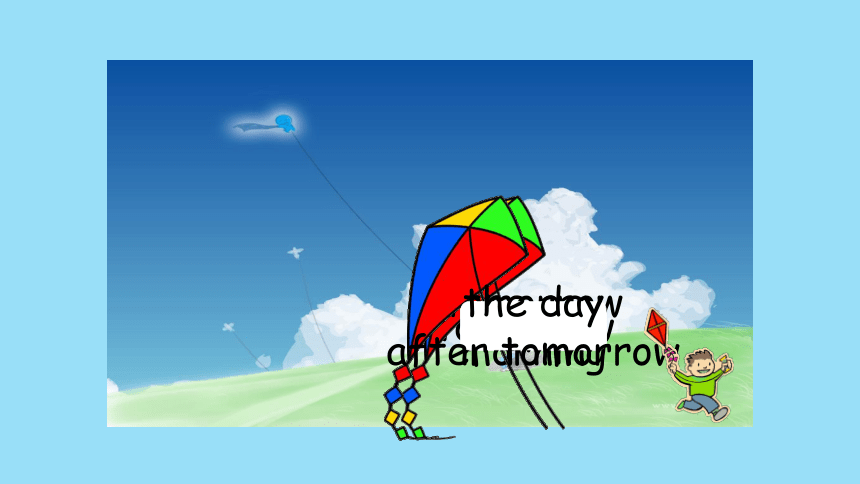
文档简介
(共42张PPT)
Lesson 91
Poor Ian!
Index
Vocabulary
Text
Grammar
Warming up
Warming-up
Group Discussion:
Have you ever moved to a new house
Vocabulary
(1) still adv. 还,仍旧
e.g. ______________________. 他还在这里。
He is still here.
Vocabulary
(2) move v. 搬家,移动
move to/into sp. 搬到某地
e.g. _____________________________________.
我们马上要搬进一幢大的房子。
常用搭配:move into __________________
We will move into a bigger house soon
move out of
Vocabulary
(3) miss v. 思念
e.g. ______________________________ 你会想我吗?
词义扩展:miss还可解释为_____________
e.g. He overslept and missed the train. ___________________________________。
他睡过头错过了火车
错过
Will you miss me
(4) neighbour n. 邻居 = neighbor (AmE)
e.g. 一个好的邻居就像一个好朋友。
____________________________________.
词汇衍生:___________________ 街坊,四邻
Vocabulary
A good neighbour is like a good friend
neighbourhood
(5) person n. 人 people n. 人们
person人 VS. people 人们
person一般特指某个人,具有某种特指:He is a very nice person.
people一般为person的复数,即more than one person
Vocabulary
Vocabulary
(6) poor adj. 可怜的
e.g. ___________________________________.
可怜的孩子,这真是悲伤的一天。
词义扩展:poor还可以解释________,
反义词为_________
Poor kid, it’s a sad day for him
贫穷的
rich
Listen and repeat
give sb regards 代……问候某人
miss [mis] v. 想念,错过
miss sb 想念某人
move [mu:v] v. 搬家
move into 搬进来
neighbour ['neib ] n. 邻居
people ['pi:pl] n. 人,人们
person ['p :sn] n. 人
poor [pu ] a. 可怜的
still [stil] ad. 还, 仍旧
the day after tomorrow 后天
tomorrow afternoon 明天下午
tomorrow morning 明天早上
miss
poor
move into
neighbour
still
person
move
tomorrow
people
still
yet
regards
tomorrow
morning
the day
after tomorrow
UP AND DOWN
Introduction:
Every student pick up a word.
Then teacher will say XXX up, XXX down.
Students have to follow the instruction.
Game on!
Text: For sale
Q: Who wanted to sell the house
Look, learn and guess
Who wanted to sell the house
Catherine / Jenny / Linda
Read and answer
Who wanted to sell the house
Ian’s wife wanted to sell the house.
Look, read and answer
Has Ian sold his house yet
________________.
Has Ian moved to his new house yet
________________.
Yes, he has
No, he hasn’t
原形 sell
过去式 sold
过去分词 sold
Look, read and answer
When is Ian going to move to his new house
________________.
Why will they miss Ian
Because __________________.
Tomorrow afternoon
he’s a very nice person
Look, read and answer
When will the new people move into Ian’s old house
________________.
Will Jenny see Ian today
________________.
The day after tomorrow
Yes, she will
Look, read and answer
Did Ian want to leave his old house
________________.
Who wanted to leave the house
________________.
No, he didn’t
Ian’s wife
Fill in the blanks
Fill in the blanks
Fill in the blanks
Fill in the blanks
Translate
Translate
Translate
Translate
Role Play
课文解析之经典例句
(1) He has always been a good neighbour.
结构:现在完成时,强调他“一直以来”,变为一般现在时为_____________________________.
注意always位置用在助动词_____________后,__________前。
He is always a good neighbour
助动词have/has
过去分词
试一试:请用现在完成时改写下列句子
Mr. Sun is always a good teacher.
_________________________________.
This desk is here all the time.
_________________________________.
Mr. Sun have always been a good teacher
This desk has been here all the time
(2) We’ll all miss him.
常用表达:all指全部,用于___________________________;
“两者都”,用____________
(3) Please give him my regards.
regard n. 致意,问候
常用表达:用于问候某人 give sb. one’s regards
替A问候B:________________________________
三者及三者以上
both
give A’s regards to B
试一试:请根据情境和括号内的提示完成下面的对话
A: Tom, long time no see.
B: Yes, how is everything going
A: Very well. Thank you. I miss you and your family.
_________________________________.
(请代我向你全家致以我真挚的问候。)
B: Thanks.
Please give my regards to all your family
Grammar
一般将来时II
课文原文重现:— When will the new people move into this house
— I think that they’ll move in the day after tomorrow.
课文原句结构:“疑问词when + will +主语+动词原形+其他”
语法:一般将来时
一般将来时结构:由“助动词shall/will+动词原形”构成
shall用于______人称,will用于______人称
比如:I shall/will help you with your car tomorrow.
第一
所有
注意:
① shall/will的缩写形式相同,都是__________。比如:
I shall = ________ I will = ________
② shall not的缩写形式为___________ will not的缩写形式为___________
试比较:be going to 与 will 在含义与用法上的区别
______________ 往往表示事先经过考虑的打算、计划;(参考L 37-38重点语法)
_____________ 通常表示客观上将要发生的。
I’ll
will
I’ll
shan’t
won’t
be going to
’ll
试一试1:请根据括号内的提示用一般将来时改写下列句子
1. I have an egg and some bread for breakfast. (tomorrow morning) _________________________________________________________.
2. The rain stopped. (the day after tomorrow) __________________________________.
3. He is 20 years old. (next year) __________________________________.
4. I don’t go to school by bike. (next month) ________________________________.
I will have an egg and some bread for breakfast tomorrow morning
The rain will stop the day after tomorrow
He will be 20 years old next year
I won’t go to school by bike next month
No. But it _________________ the day after tomorrow. (后天雨会停)
Where __________________ meet tomorrow
(我们明天在哪里见面?)
试一试:
Neil and Yoyo are chatting with each other.
will we
will stop
At the school gate.
Will the rain stop tomorrow
( )1. Tomorrow_____Jenny's birthday. A. is B. will C. was D. has been ( )2. If you leave, we_____you. A. all will miss B. are all miss C. will all miss D. are miss all ( )3. I_____to a big house next year. A. will move B. move C. moved D. have moved ( )4. Please give my regards_____your parents. A. to B. for C. at D. in ( )5. Bill drove_____Paris last month. A. at B. to C. in D. for
Read and choose
A
C
A
A
B
( )6. I_____English classes every day next year. A. have B. had C. will have D. am having ( )7. A: Will Lily have the problem today B: No, she_____have any trouble. A. don't B. aren't C. won't D. didn't ( )8. Ian didn't want to leave this house,_____ A. didn't he B. does he C. did he D. doesn't he ( )9. I_____to you when I have time. A. am writing B. will write C. write D. wrote ( )10. It_____rain. Let's go home. A. is going to B. has been C. is to D. shall
Read and choose
C
C
C
B
A
Thank you!
Lesson 91
Poor Ian!
Index
Vocabulary
Text
Grammar
Warming up
Warming-up
Group Discussion:
Have you ever moved to a new house
Vocabulary
(1) still adv. 还,仍旧
e.g. ______________________. 他还在这里。
He is still here.
Vocabulary
(2) move v. 搬家,移动
move to/into sp. 搬到某地
e.g. _____________________________________.
我们马上要搬进一幢大的房子。
常用搭配:move into __________________
We will move into a bigger house soon
move out of
Vocabulary
(3) miss v. 思念
e.g. ______________________________ 你会想我吗?
词义扩展:miss还可解释为_____________
e.g. He overslept and missed the train. ___________________________________。
他睡过头错过了火车
错过
Will you miss me
(4) neighbour n. 邻居 = neighbor (AmE)
e.g. 一个好的邻居就像一个好朋友。
____________________________________.
词汇衍生:___________________ 街坊,四邻
Vocabulary
A good neighbour is like a good friend
neighbourhood
(5) person n. 人 people n. 人们
person人 VS. people 人们
person一般特指某个人,具有某种特指:He is a very nice person.
people一般为person的复数,即more than one person
Vocabulary
Vocabulary
(6) poor adj. 可怜的
e.g. ___________________________________.
可怜的孩子,这真是悲伤的一天。
词义扩展:poor还可以解释________,
反义词为_________
Poor kid, it’s a sad day for him
贫穷的
rich
Listen and repeat
give sb regards 代……问候某人
miss [mis] v. 想念,错过
miss sb 想念某人
move [mu:v] v. 搬家
move into 搬进来
neighbour ['neib ] n. 邻居
people ['pi:pl] n. 人,人们
person ['p :sn] n. 人
poor [pu ] a. 可怜的
still [stil] ad. 还, 仍旧
the day after tomorrow 后天
tomorrow afternoon 明天下午
tomorrow morning 明天早上
miss
poor
move into
neighbour
still
person
move
tomorrow
people
still
yet
regards
tomorrow
morning
the day
after tomorrow
UP AND DOWN
Introduction:
Every student pick up a word.
Then teacher will say XXX up, XXX down.
Students have to follow the instruction.
Game on!
Text: For sale
Q: Who wanted to sell the house
Look, learn and guess
Who wanted to sell the house
Catherine / Jenny / Linda
Read and answer
Who wanted to sell the house
Ian’s wife wanted to sell the house.
Look, read and answer
Has Ian sold his house yet
________________.
Has Ian moved to his new house yet
________________.
Yes, he has
No, he hasn’t
原形 sell
过去式 sold
过去分词 sold
Look, read and answer
When is Ian going to move to his new house
________________.
Why will they miss Ian
Because __________________.
Tomorrow afternoon
he’s a very nice person
Look, read and answer
When will the new people move into Ian’s old house
________________.
Will Jenny see Ian today
________________.
The day after tomorrow
Yes, she will
Look, read and answer
Did Ian want to leave his old house
________________.
Who wanted to leave the house
________________.
No, he didn’t
Ian’s wife
Fill in the blanks
Fill in the blanks
Fill in the blanks
Fill in the blanks
Translate
Translate
Translate
Translate
Role Play
课文解析之经典例句
(1) He has always been a good neighbour.
结构:现在完成时,强调他“一直以来”,变为一般现在时为_____________________________.
注意always位置用在助动词_____________后,__________前。
He is always a good neighbour
助动词have/has
过去分词
试一试:请用现在完成时改写下列句子
Mr. Sun is always a good teacher.
_________________________________.
This desk is here all the time.
_________________________________.
Mr. Sun have always been a good teacher
This desk has been here all the time
(2) We’ll all miss him.
常用表达:all指全部,用于___________________________;
“两者都”,用____________
(3) Please give him my regards.
regard n. 致意,问候
常用表达:用于问候某人 give sb. one’s regards
替A问候B:________________________________
三者及三者以上
both
give A’s regards to B
试一试:请根据情境和括号内的提示完成下面的对话
A: Tom, long time no see.
B: Yes, how is everything going
A: Very well. Thank you. I miss you and your family.
_________________________________.
(请代我向你全家致以我真挚的问候。)
B: Thanks.
Please give my regards to all your family
Grammar
一般将来时II
课文原文重现:— When will the new people move into this house
— I think that they’ll move in the day after tomorrow.
课文原句结构:“疑问词when + will +主语+动词原形+其他”
语法:一般将来时
一般将来时结构:由“助动词shall/will+动词原形”构成
shall用于______人称,will用于______人称
比如:I shall/will help you with your car tomorrow.
第一
所有
注意:
① shall/will的缩写形式相同,都是__________。比如:
I shall = ________ I will = ________
② shall not的缩写形式为___________ will not的缩写形式为___________
试比较:be going to 与 will 在含义与用法上的区别
______________ 往往表示事先经过考虑的打算、计划;(参考L 37-38重点语法)
_____________ 通常表示客观上将要发生的。
I’ll
will
I’ll
shan’t
won’t
be going to
’ll
试一试1:请根据括号内的提示用一般将来时改写下列句子
1. I have an egg and some bread for breakfast. (tomorrow morning) _________________________________________________________.
2. The rain stopped. (the day after tomorrow) __________________________________.
3. He is 20 years old. (next year) __________________________________.
4. I don’t go to school by bike. (next month) ________________________________.
I will have an egg and some bread for breakfast tomorrow morning
The rain will stop the day after tomorrow
He will be 20 years old next year
I won’t go to school by bike next month
No. But it _________________ the day after tomorrow. (后天雨会停)
Where __________________ meet tomorrow
(我们明天在哪里见面?)
试一试:
Neil and Yoyo are chatting with each other.
will we
will stop
At the school gate.
Will the rain stop tomorrow
( )1. Tomorrow_____Jenny's birthday. A. is B. will C. was D. has been ( )2. If you leave, we_____you. A. all will miss B. are all miss C. will all miss D. are miss all ( )3. I_____to a big house next year. A. will move B. move C. moved D. have moved ( )4. Please give my regards_____your parents. A. to B. for C. at D. in ( )5. Bill drove_____Paris last month. A. at B. to C. in D. for
Read and choose
A
C
A
A
B
( )6. I_____English classes every day next year. A. have B. had C. will have D. am having ( )7. A: Will Lily have the problem today B: No, she_____have any trouble. A. don't B. aren't C. won't D. didn't ( )8. Ian didn't want to leave this house,_____ A. didn't he B. does he C. did he D. doesn't he ( )9. I_____to you when I have time. A. am writing B. will write C. write D. wrote ( )10. It_____rain. Let's go home. A. is going to B. has been C. is to D. shall
Read and choose
C
C
C
B
A
Thank you!
同课章节目录
